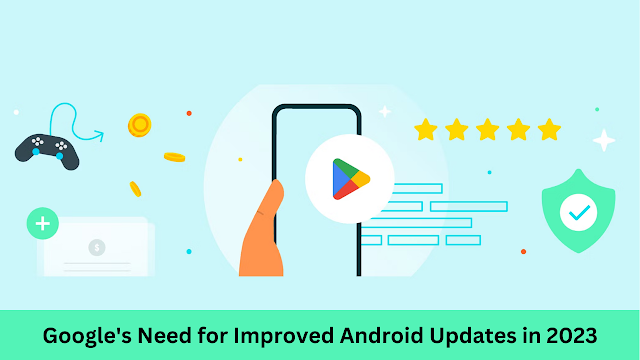Google's Need for Improved Android Updates in 2023
Google has long been known as a clean and green company that places a strong emphasis on sustainability. However, when it comes to software updates, the company's reputation is not as glowing. Despite promising five years of security patches for its Pixel phones, Google has refused to offer more than three Android updates for years. In this article, we will take a closer look at Google's commitment to software updates and sustainability.
Surpassed by the Competition
Google was previously a software update leader, with its three-year update guarantee. However, the brand has now been overtaken by its rivals. Samsung has revamped its software development methodology and now offers a more simply updateable system. Samsung's flagships often get security fixes before Google's handsets, and although Samsung can't compete with Google for complete Android system upgrades, it comes close. Even OnePlus, which was previously chastised for its lack of software upgrades, now guarantees up to four Android version updates and five years of security fixes for its flagship phones.
Apple, on the other hand, has always been in a much stronger position. For all of its phones, the company provides software upgrades for six to eight years. This is because Apple offers both hardware and software for their devices, while other Android manufacturers depend on pre-built CPUs like as the Qualcomm Snapdragon 8 Gen 2 which is decent enough for apps such as phonecopy. Nevertheless, this implies that, unlike Apple, most manufacturers have less control over how long they may give updates to their devices.
Google's Position to Lead the Android World
Google is currently in a position comparable to Apple in terms of software upgrades. The Google Tensor, a bespoke silicon solution, was debuted with the Google Pixel 6 series. Since then, the business has released the Google Tensor G2, which addresses many of the difficulties we experienced with the original generation. While Google's Tensor processor is not as customized as Apple's, it works on more common hardware and incorporates Samsung's Exynos modem. This, as well as certain thermal difficulties, were addressed with the Google Pixel 7 series, and it's understandable that the company's first try at its own SoC was not without flaws.
Summing Up
Google has long been committed to sustainability, but when it comes to software updates, the company still has a lot of work to do. The company has been surpassed by the competition and is no longer a leader in software updates. However, with the introduction of its custom silicon solution, Google is now in a position to lead the Android world in software updates. As consumers, we hope that Google will take advantage of this opportunity and provide software updates that are on par with the best in the industry.



Comments
Post a Comment